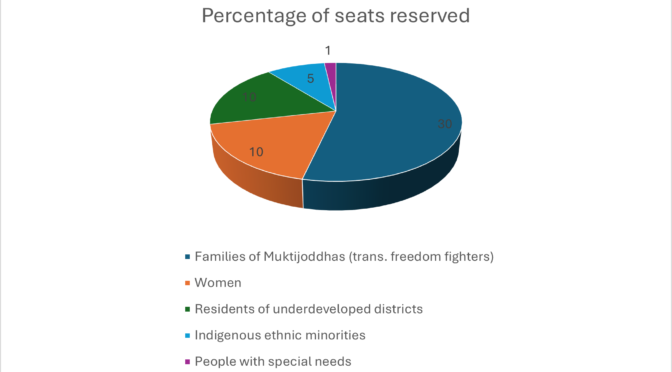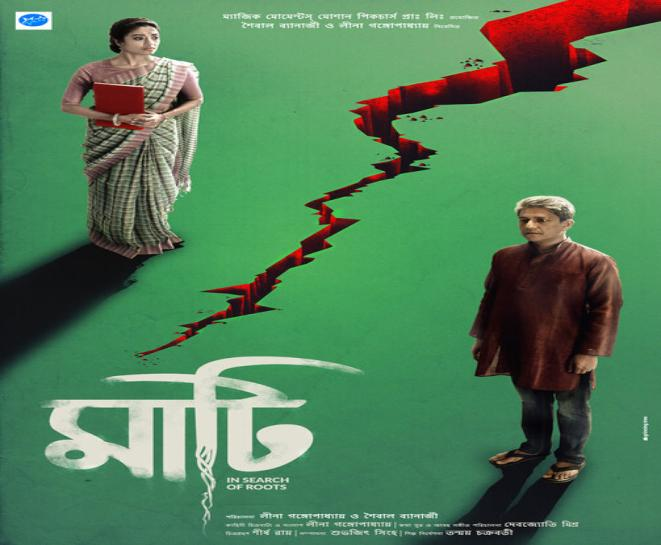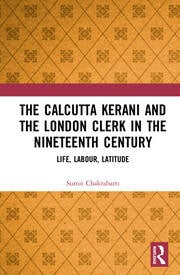THE BANGLADESHI ANTI-QUOTA STUDENT PROTESTS OF 2024
Posted on : July 22, 2024Author : Raunak Bhattacharya

Marie Anotinette, the wife of Louis XVI, is rumoured to have stated, ‘Ils n’ont pas de pain? Qu’ils mangent de la brioche!’ (trans.: ‘If they can’t have bread, let them eat cake!’) Whether or not, she had really said this, remains a question of historical verification, but the outcome of this statement led to a cataclysmic event that would change the course of France, Europe and the entire world. The French Revolution of 1789 popularised the slogan of Liberte, Egalite, Fraternite and brought about the end of the French House of Bourbon, with the guillotine of Marie Antoinette and her husband, the head of state, Louis XVI.
The student protests and riots of July 2024 in Bangladesh have been primarily directed towards the affirmative action program of the state, wherein seats are reserved for the families of Muktijoddhas (trans. freedom fighters), women, residents of underprivileged districts, indigenous communities and people with special needs. This amounts to a whooping 56% of the total number of seats getting reserved. The first three sections have an accumulated 50%, while the last two categories have 6% reserved seats. 30 % of the seats are reserved for the families of the Muktijoddhas. Since its conception in 1972, the system has undergone changes, however, this is the basic structure. The system had been previously revoked in 2018; however, it was subsequently reinstated by the Dhaka High Court in June 2024 and is currently under appeal to the Supreme Court of Bangladesh.
The anti-reservation protesters have pointed out at the discriminatory nature of the reservation politics. A series of false admissions and question paper-leaks have added fire to the fury of an already slowing rate of GDP growth, that has capped at 5.8 % for the fiscal year 2023, as compared to 7.1 % the year earlier.
It is imperative to refer the Antoinette moment that has landed the Sheikh Hasina government in hot waters. Her statement reads as follows: ‘Muktijoddhader naati-puti rao paabe na, tahole ki Razakar er naati-puti ra paabe?’ (trans. If not the grandsons and granddaughters of the freedom fighters, will it be the grandsons and granddaughters of Razakars, who shall be the beneficiaries?) This reference of Razakars to the protesting students have further alienated the government. The term, Razakar, means volunteer in Arabic. But, in the context of the Bangladeshi independence movement and the subsequent Bangladeshi war of independence if 1971, the collaborators of the East Pakistani regime were referred to as Razakars. Following independence, they have been tried as war criminals.
There is a sizeable section of the populace that feels close to the very Islamist ideals that have enshrined by the far-right fundamentalist elements of the Bangladeshi political milieu, targeting the sizeable Hindu minority, which currently stands at 7.95% of the population, with the population declining from 22% to 9% in the years 1951-2011. Thus, when the Prime Minister referred to the protesters as being Razakars, it invited the wrath of the already fuming student wing that has been adversely affected by the government’s affirmative action policies. The high handedness of the Chhatro League (Students’ League), the student-led wing of the Awami League, Sheikh Hasina’s party, has further added to the woes. As students all over the country are protesting the reservation fiasco, the extraordinary impact of police brutality can be seen.
As of 19th of July 2024, more than 30 students have succumbed to injuries sustained during protests and more than 400 students are declared injured. The idea of ‘medha’ or merit is at present challengeing the ‘Muktijuddher chetona’ (trans. the spirit of the Liberation war), thereby attracting protesters from the most urbane backgrounds to the rural madrassa going students. There is a certain homogeneity of demands that are being created. The slogan, ‘Ami ke? Tumi ke? Razakar, Razakar’ (trans. Who are you? Who am I? Razakar, Razakar) reflects this.
The movement has been primarily a social media driven movement that has attracted attention from different corners of the world. In each of the posts, one can witness the tinge of religious sentiment attacking the secular ethos of the Muktijuddher chetona while highlighting the veritable systemic corruption that has infiltrated the psyche of the Bangladeshi people. It is only a return to the ‘true teachings and values of Islam’ that shall bring about a positive change. Despite the so-called apolitical leanings of the present movement, it is indeed a right-wing manoeuvred populist movement against the party in power rather than the larger government machinery. The political culture of Bangladesh has always hinged towards student movements as the first form of dissent against the status quo. The incumbent government is certainly at risk, especially Sheikh Hasina’s image as the daughter of the liberation and that of Bongomata (trans. as ‘mother of Bengalis (sic.)’, more specifically, ‘mother of Bangladeshis’). The lack of a strong political base in this current movement shall surely make it fizzle out, but in the ongoing conflagration, the great loss of young lives can never be compensated in entirety.
Raunak Bhattacharjee
Adjunct Researcher, Asia in Global Affairs





Leave a Reply